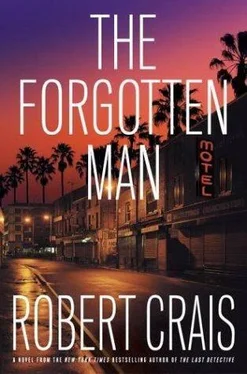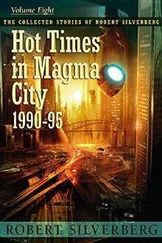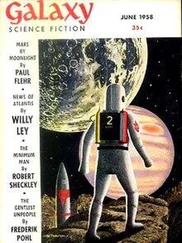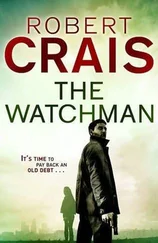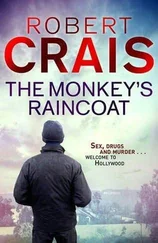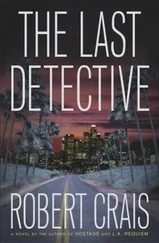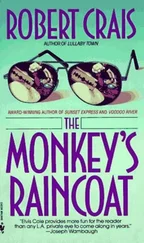"Here, this is Lita and Ray-Ray was Daddy's younger brother-and this is George. Look at the way Lita was carrying on even when her picture was being taken. They were nasty people."
Great. Just what you want to hear about people who might be your family.
The picture showed a man, a woman, and a boy with a triangular head in front of a Christmas tree. It was George. He was propped on crutches, and looking past the camera as if he was not expecting the picture to be taken. His father was a soft man with uncertain eyes, and his mother had close-set features that made her look irritated. I could see George's features in Ray. Like father, like son.
"This was before George had the operation. Lita wouldn't have sent a picture after. Ray asked Daddy for money to help with the operation, but Mama said we had our own family to feed. Well, Lita wrote the most awful letter you can imagine, and that was the last we saw of them."
I gave back the album.
"So you didn't stay in touch after that?"
"Lord, no. Mama would have had a fit. I haven't seen nor heard from George since, oh I had a family, so he would've been in high school. You never told me why you're looking for George."
"George is dead. He was murdered four days ago."
She stared at me with no expression for a moment, then dropped a hand down alongside the chair. Margo hobbled over and snuffled her fingers.
"Well, that's just terrible. What a terrible thing."
"How about your brothers and sisters? You think they stayed in touch with George?"
"Well, I can't know, but I doubt it. Both my sisters and my brother are gone. I was the youngest on my side."
"How about your children?"
She made a little snort, and Margo stopped snuffling.
"They don't even come to see me -they wouldn't bother with George. George had run off by the time they were old enough to give a damn."
"What do you mean, run oft?"
"George got some gal pregnant, and dropped out of school. Mama said the apple doesn't fall far from the tree, Lita being loud the way she was and Ray a drinker. Mama said that boy would come to no good, gettin' some girl pregnant, and now here he is murdered. I guess Mama was right."
I sipped the coffee and made a tiny scratch on my pad. A tiny black line that disrupted the perfect order of the blank yellow page.
"Pregnant."
"Low-class people will do that."
She arched her eyebrows and made a nasty smile. I made another mark on the pad.
"This girl, do you know who she was?"
My hands were damp when I asked. I rubbed them on my thighs, and tried not to be obvious.
"No. That all might have been just talk, anyway. If George had a girl, I sure never saw her and don't know anyone who did."
"That year when George ran off, did any of the local girls move away?"
Mrs. Reinnike laughed.
"Not for anything like that. That was 1953, son. When a girl had a problem like that, she bee-lined it down to Mexicali and was back the next day. We called it the one-night-stand shuttle."
She cackled again, as if she had known more than one or two who had taken the shuttle.
"Do you recall what people were saying about her? If she wasn't a local, was she a stranger? Maybe from out of town?"
"You sound like you know who she was."
"Just trying to help you remember."
She made a shrug like she couldn't be sure either way.
"What's all this have to do with finding his next of kin?"
So much for not being obvious.
"The child would be his next of kin, and the child's mother might know where George was living."
"Well, that's true. I wish I could help you with that, but I don't know, and I can't imagine anyone still living who might. George wasn't a likable boy. He took after Lita that way. I guess it might have been his legs, leaving him bitter and angry, but I don't remember anyone having anything good to say about him. He got in fights and was always in trouble and lorded his money. No one wanted to be around someone like that."
Lording money didn't jibe with the cheap furnishings in the Christmas picture, and Ray and Lita asking Edelle's parents for help to pay for George's operation. I asked her about it.
"Oh, George had plenty of money. That hospital botched up his operation, and had to do it again. Ray and Lita got some kind of fancy settlement. Well, they didn't get the money, but George did. He got a check every month, right on the dot."
"He got monthly payments?"
Mrs. Reinnike looked smug.
"That was the judge. The judge took one look at Ray and Lita, and gave the money straight to George. I guess he figured if George got the money little by little, Ray and Lita wouldn't be able to spend it."
"This was the hospital in San Diego?"
"Well, I guess. I don't really remember, but I guess it had to be."
If George had been getting a monthly payout, the hospital or their insurance company would have a record of his addresses. I checked the time. It was still before noon, and I could probably make it to San Diego in less than two hours.
I thanked Edelle Reinnike, and the two of us walked to the door. I wanted to ask another question, but had to work up my nerve. I stepped out into the heat, then turned back to face her.
"Mrs. Reinnike, do I look familiar to you?"
"Nope. Should you?"
The sun burned bright in the clean desert sky, and bounced off the white dust as if it were snow.
The Andrew Watts Children's Hospital looked like a grim Iberian citadel perched in the El Cajon foothills, one of those imposing stone and cast-cement fortresses that architects built when they hoped their buildings would last forever. I paid five dollars for visitor parking, then entered the main lobby and wandered around for ten minutes trying to find the reception desk. If the outside looked like a citadel, the inside looked like Grand Central Station.
A nursing aide gave me directions, but I got lost and had to ask someone else. On my third try, I found the right hall, and stepped through double glass doors to another receptionist.
I said, "Hi. Elvis Cole to see Mr. Brasher. He's expecting me."
"You can have a seat if you like. I'll let him know."
After two hours in the car I didn't want to sit. I drifted back to the glass doors and stared out into the hall. Chairs and padded benches lined the wall, but no one was sitting in them. Two women walked by, laughing. One of them glanced at me, and I smiled, but she went about her business without smiling back. I imagined a little boy on crutches hobbling into the building. The boy's father smelled of whiskey and his mother was loud. I wondered if he had been scared. I would have been scared.
Behind me, a man said, "Mr. Cole, I'm Ken Brasher. C'mon back to my office and I'll show you what we have."
Ken Brasher was a neat, balding man in his midthirties with dark-framed glasses and a businesslike handshake. I had phoned ahead from the car, figuring it would be a smart use of the two-hour drive. I had been in the middle of nowhere just a few miles north of the Mexican border, but my cell reception was flawless. Maybe I should move to the desert.
After we shook hands, Brasher glanced at the receptionist.
"Would you tell Marjorie he's here and ask her to come down, please."
The receptionist touched her phone as I followed Brasher into another hall.
"Our legal-affairs people want to be in on this. I hope you don't mind."
"Not a problem. Were you able to reach the medical examiner?"
"Yes. He faxed down the death certificate."
"Is there going to be a problem with me getting the addresses?"
"I don't think so, no, but I'll let Marjorie handle that. Marjorie is our legal-affairs officer."
When we spoke on the phone, Brasher confirmed that the hospital had a legal agreement with Reinnike, but wouldn't divulge the details until he had confirmation of Reinnike's death and discussed it with their attorneys. I gave him Beckett's number at the coroner's office, and asked that he call. Apparently, he called. Apparently, Beckett told him that I was for real.
Читать дальше
